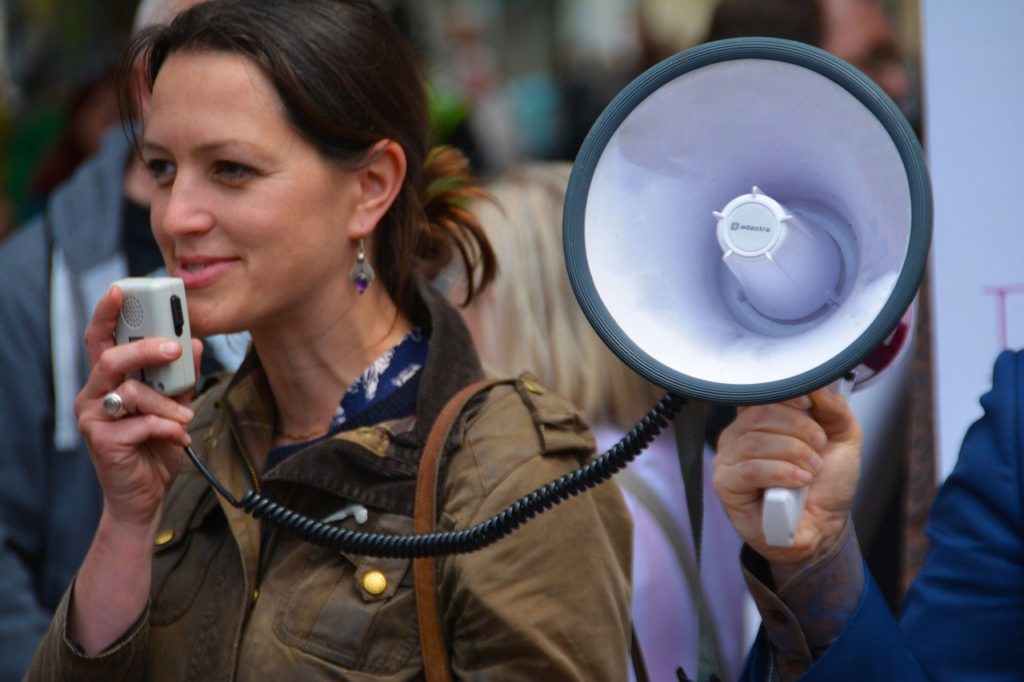Our Society Still Doesn’t Understand Introversion
“Bobby, this is somewhat concerning.”
Those are never words you want to hear from a counselor. Nonetheless, that’s what my high school guidance counselor told me as she explained my personality test results.
My test results said I was 100% extroverted. According to the test, I did not want to spend any time alone. My version of an ideal day was to spend every waking moment with other people.
While the counselor was alarmed, I was elated.
I couldn’t think of a better possible score on the test. The test confirmed that I was a “people person,” which was a big win in my book — the ultimate compliment to receive in Extroverted America.
My score prophesied deep relationships, fun parties, leadership roles, and business success. What more could a person want?
“Today we make room for a remarkably narrow range of personality styles. We’re told that to be great is to be bold, to be happy is to be sociable. We see ourselves as a nation of extroverts — which means that we’ve lost sight of who we really are.” -Susan Cain
Fast-forward to last week. I was on a plane flying to Boise, Idaho — my old hometown.
As soon as the last passenger boarded the plane, a flight attendant used the intercom to walk through the security protocol.
Before launching into the usual proceedings, she made a special announcement: “My fellow flight attendant is Christie, and it’s her birthday today. She wouldn’t want me to tell you that because she’s shy, but you should all tell her happy birthday!”
An hour later, the flight attendant got on the mic again to repeat the bday message: “Tell her happy birthday. I just have to keep embarrassing her; she’s a really good person!”
In that moment, something struck me:
As a society, we still don’t understand introversion.
The flight attendant and I had both seriously misjudged our situations.
She didn’t understand how to truly honor her friend, and I failed to realize the valuable aspects of life I’d be missing by closing off my life to introversion.
“There is no such thing as a pure extrovert or a pure introvert. Such a man would be in the lunatic asylum.” -Carl Jung
Unfortunately, we make mistakes like this all the time regarding introversion.
We assume introverts want to be recognized like extroverts. They don’t.
We assume introverts should conform to be like extroverts. They shouldn’t.
We assume introverts all secretly want to be extroverts. They don’t.
The Extroversion Bias
For decades, society has implicitly taught us that extroversion is good and introversion is bad. This extroversion bias shows up in subtle ways:
- “Don’t be a wallflower.”
- “You need to improve your networking skills.”
- “You should speak up more often.”
- “You should let us throw you a big party for your birthday.”
Author Susan Cain says numerous factors have fueled America’s extroversion bias, including self-help guides with titles like How to Win Friends and Influence People, media and advertisements that reinforce the importance of a “winning personality,” and our country’s obsession with magnetic movie stars.
“We like to think that we value individuality, but all too often we admire one type of individual — the kind who’s comfortable ‘putting himself out there.’” -Susan Cain
This extraversion bias shows up in all areas of life — including work.
We assume there’s one best way to recognize people (i.e., publicly).
We assume there’s one best way to show up in meetings (i.e., loud, confident).
We assume there’s one best leadership style (i.e., bold, extroverted).
Wrong. Wrong. Wrong.
While our society may have a bias toward extroversion, that bias is not supported by data. In her book Quiet: The Power of Introverts in a World That Can’t Stop Talking, Cain shares that introverts get better grades, learn more from their mistakes, and tend to be more creative than extroverts.
In other words, there’s no need for us to “fix” introverts, and we shouldn’t try to make them more extroverted. We should appreciate the strengths of introversion the same way we appreciate the strengths of extroversion.
My Introversion Journey
My extroversion peaked in college — when I filled every spare moment with extracurricular activities like student government, intramural sports, fraternity events, and road trips with friends.
But in the ten years since I graduated from college, I’ve gradually become more and more introverted.
I’ve changed a lot since that high school personality test.
Now it’s common for me to turn down invites from friends because I’d prefer a quiet night at home. My favorite evening activity is reading and writing at my desk for hours at a time.
I joke with co-workers that my ideal “party” now isn’t loud music and dancing but getting together with close friends to quietly read together while sipping glasses of wine.
I’m not sure what factors pushed me to become more introverted, but I enjoy the change.
I’d now classify myself as an “ambivert”: someone who exhibits characteristics of both extroverts and introverts. My introverted side was probably there all along, but I suppressed it because I thought it was better to be an extrovert.
I’ve begun to embrace my inner introvert.
The high school version of myself would probably judge me for being a wallflower: Why wouldn’t you want to hang out with friends tonight? Why would you prefer to spend a night alone reading?
Honestly, I don’t care about how Past Extrovert Bobby would judge me. I’m finally becoming the person I’m supposed to be.
5 Ways to Embrace Your Inner Introvert
It’s possible that — like me — you’ve suppressed your inner introvert. If that’s the case, it may be time to embrace the quiet half of your personality.
Doing so requires you to become more comfortable with solitude, listening to others, and thinking before you speak.
“Our culture made a virtue of living only as extroverts. We discouraged the inner journey, the quest for a center. So we lost our center and have to find it again.” -Anaïs Nin
Here are five ways I’ve found to embrace my inner introvert:
1. Observe the silent wisdom of introverts
I’ve always admired the people who can sit in silence for the first 55 minutes of an hour-long meeting, then speak two or three sentences of wisdom that alter the trajectory of the group’s decision.
Keep your eyes open for people like that. Learn from their silence and pay attention to the way they use one-tenth of the words yet exhibit double the wisdom of the extroverts in the room.
People sometimes assume that introverts are less capable or less confident than their extroverted peers. But capability and confidence aren’t tied to speaking loudly and frequently. Introverts often demonstrate intelligence and self-assurance in quiet, yet more profound ways than others do.
“Wisdom is the reward you get for a lifetime of listening when you’d have preferred to talk.” -Doug Larsen
2. Ask more questions
It feels great to give advice. Not only does giving advice make us feel important, but it makes us feel helpful.
However, if you observe introverts, you’ll notice that they not only tend to listen more than extroverts, but they also ask more questions. Rather than jumping to conclusions, they seek out more information. We would be smart to learn from their behavior.
3. Make time for solitude
Each one of us has a solitary activity that refreshes us and gives us a needed reset. That activity could be reading, writing, going on long walks, praying, working out, or a million other things.
Whatever your solitary recharge may be, make time for it. Schedule it into your daily life.
4. Be honest with yourself and others about what you enjoy
We cannot live a fully satisfying life without being honest with ourselves and others. One key element of honesty is owning your passions and sharing those with the world.
For example, I’ve loved reading for years. But I also wanted to be perceived as a “people person,” and my bookworm habits ran somewhat counter to that. So I hesitated to embrace my nerd status until a few years ago. Now I’ve come to terms with it — to the point of shamelessly wearing my Powell’s Books shirt at work almost every week. I’m done hiding my introverted passion.
“The secret to life is to put yourself in the right lighting. For some it’s a Broadway spotlight; for others, a lamplit desk.” -Susan Cain
5. Find the right balance between solo, duo, and group time
When my wife and I got married eight years ago, I felt guilty whenever I needed time for myself. My extroverted mind told me it was wrong to carve out alone time: Why spend time alone when you can spend time together?
Later in our marriage, my wife and I both realized that we needed time to ourselves. We’ve now found a good rhythm of hanging out with friends about once a week, going on a date night or two together each week, and also creating solo time in our schedule.
Balancing these three buckets of time has helped us develop deep friendships, become closer as a couple, and work on ourselves through quiet introspection.
5 Ways to Stand Up for Other Introverts
Whether you see yourself as an introvert or an extrovert, you can work to create an inclusive environment where all personality types can thrive.
Here are five ways I’ve found to stand up for other introverts in life and work:
1. Advocate for an even playing field
Several years ago, I served on a college advisory council that offered curriculum advice.
During one meeting, several council advisors were advocating for professors to assign more points to classroom discussion within each of the college classes. As they saw it, students who spoke up in class were engaged and deserved a higher grade in the course.
I had recently read Susan Cain’s book Quiet, so introversion was at the forefront of my mind. I spoke up and expressed my concerns over creating a classroom model that rewarded extroverts and punished introverts.
One of the advisors (a loud, extroverted sales executive) quickly dismissed my point: “These kids need to learn how the real world operates. Kids need to get over their reservations and learn how to speak up.”
In my opinion, “Get over it” is rarely good advice. I think we’ve been asking introverts to “Get over it” for far too long.
As a society, we need to recognize that introverts are every bit as valuable as extroverts. We need to build a world that supports both personality styles.
2. Amplify the voices of introverts
In work meetings, I’ve found that many of the most thoughtful opinions come from those who speak the least. I don’t want to miss out on brilliant ideas, so I’ve begun to ask those individuals to share their thoughts (either during the meeting or after it).
When introverts do share, they’re often interrupted by extroverts who express overly confident opinions. When I notice introverts getting interrupted, I’ve started to interrupt the interrupter and ask the introvert to continue speaking.
Actions like this immediately signal two things. First, the introvert is encouraged to share again in the future because they’ve been given room to speak. And second, the interrupter receives a subtle (or not so subtle) hint that they should allow others to share.
3. Provide alternative methods of communication
At conferences, company meetings, and multiple other forums, it’s common to ask people to raise their hand or come to a microphone to ask questions. These are great options for extroverts, but they can be intimidating situations for many introverts.
To give equal footing to introverts in these situations, my company has begun to offer alternative options for employees to share their ideas.
For example, we’ve sent out anonymous surveys to gather questions before or after meetings, given team members the chance to text questions to a specific phone number, and allowed people to send online chat messages to someone else who can read each comment aloud to the audience.
Although far from perfect, these alternatives have given a voice to more employees in our company, and we are better for it.
4. Offer quiet options at group gatherings
Parties and group gatherings are often tailor-made for extroverts: loud music, dancing, and tons of people.
To provide an alternative option for introverts, this year my company decided to offer a quiet room at our annual company party. The quiet room provided a relaxed, peaceful setting that fostered deeper conversation in smaller groups, which appealed to many of our introverted team members.
5. Recognize introverts in the way they want to be recognized
Many of us have made the same mistake as the flight attendant from earlier in this story. One of our introverted friends has a birthday or key life milestone, and we “can’t help ourselves” from throwing a big party for them.
Although we mean well, we are probably being more selfish than helpful in these situations. It’s better for us to ask ourselves how that person would prefer to be recognized for their special occasion.
Maybe they’d want a small gathering at their favorite dive bar. Or perhaps they’d prefer a quiet night in to watch a movie and make popcorn with two or three close friends.
Whatever the case, we should strive to honor our friend’s preference. We should recognize their special event in the way they’d want to recognize it.
With the ideas above (and many others), I know we can find ways to celebrate the differences between introverts and extroverts.
Let’s work together to create a world that appreciates each person’s unique strengths, personality, and interests.
What can you do to start creating that world today?








